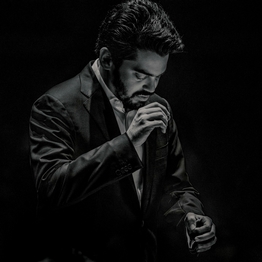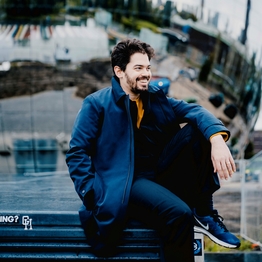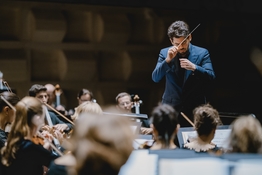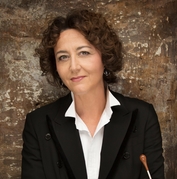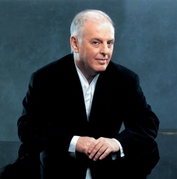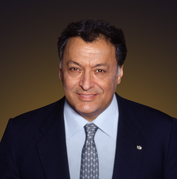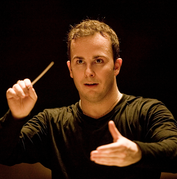

Lahav Shani
News
Lahav Shani joined by the Rotterdam Philharmonic Orchestra record Bruckner's Symphony No. 7
Lahav Shani, Chief Conductor of the Rotterdam Philharmonic Orchestra for the past five years, conducts the Dutch ensemble in Bruckner’s epic Symphony No 7.
Shani, who first encountered Bruckner’s music as a young double bass player in Israel, admires the Austrian composer for his proverbially grand symphonic architecture, but also for his vision and the atmosphere he creates. Shani emphasises the need for a conductor to take a finely judged and a coherent approach in the Symphony No 7, following a storyline and building up to the mighty climaxes over extended periods … “from a hint of light to the whole world,” as he describes it.
Bruckner idolised Wagner, and Shani reminds us that he composed the Symphony No 7 in the early 1880s, as the older composer was dying. “It is a tribute from one artist to another,” he says. In particular, Bruckner introduces Wagner tubas (an instrument created at Wagner’s instigation for Der Ring des Nibelungen) into a symphony for the first time. The four Wagner tubas in Bruckner’s score make their initial appearance in the second movement and in an especially portentous moment join in a solemn chorale with the contrabass tuba against a background of low strings.
Shani’s sense for symphonic structure and drama, and the Rotterdam Philharmonic’s response to it, was evident in the recording (released in 2022) of a work composed some 50 years after Bruckner’s: Shostakovich’s Symphony No 5. Gramophone magazine’s reviewer admired “ … an account where the feeling is refreshingly one of rediscovery. From bar one there is an inescapable and unremitting tension. Shani has a wonderful nose for atmosphere … The second subject [of the first movement] brings a glimmer of hope and warmth but the theatre of war is soon upon us and Shani’s darkly imposing Rotterdam brass bring home the development thrillingly ... Shani reminds me just how achingly beautiful the slow movement of this piece is. The atmosphere is again distilled and super-spatial, with string-playing that leans wholeheartedly into the harmonic pull of the music – and honestly I don’t think I have ever heard the transition into the hushed final pages sound quite as breathtaking … A terrific disc.”
Lahav Shani teams with Rotterdam Philharmonic Orchestra in Kurt Weill’s Symphony No 2 and Dmitri Shostakovich’s Symphony No 5
Two symphonies from the turbulent 1930s are juxtaposed in Lahav Shani’s second Warner Classics release as Chief Conductor of the Rotterdam Philharmonic Orchestra: Kurt Weill’s Symphony No 2 and Shostakovich’s Symphony No 5.
Shani took up his post in Rotterdam in 2018 and his contract with the orchestra extends to 2026. As he has said: “The chemistry I felt with the orchestra from day one is still growing.” Describing Weill’s Symphony No 2 as “one of my favourite pieces to conduct with orchestras across the world,” he goes on to explain more about the work:
“When we think about Kurt Weill, the first thing that comes to mind is theatre music and songs. Of course, you will find elements of the same style in the symphony, but it is serious music – absolute music that is not ‘about’ something. It is fully symphonic – symphonic writing and symphonic development. I think it will really surprise you if you’ve only heard Weill’s songs. I was certainly surprised! You can hear a bit of Mahler and Shostakovich, but the style and harmony are very personal and unique. It is tonal music, very melodic, very theatrical… and really not comparable to anything else. The symphony was the last piece that Weill wrote in Europe, and also his last symphonic music. After that he only wrote music for film and theatre. It’s a great loss for the classical music world that he didn’t write more like this.”
Weill composed the symphony in France in 1933, having escaped Hitler’s new regime in Germany. It received its premiere in Amsterdam, conducted by Bruno Walter, who also led performances in Rotterdam, The Hague, Vienna and New York. The score has affinities with the musical play Der Silbersee, the last work Weill completed in Germany, and Die sieben Todsünden, a ‘ballet chanté’ premiered in Paris in June 1933. The American premiere of his most celebrated collaboration with Bertolt Brecht, The Threepenny Opera, took place in April 1933 and eventually, in September 1935, Weill and his wife Lotte Lenya emigrated to the USA.
Shostakovich’s Symphony No 5, premiered in 1937 and now the best known of his 15 symphonies, concluded Lahav Shani’s inaugural concert as Music Director of the Rotterdam Philharmonic in 2018.
Famously, the composer – whose opera Lady Macbeth of Mtsensk had been publicly damned by the authorities in early 1936 – described the work as “the creative response of a Soviet artist to justified criticism”. The symphony enjoyed a rapturous success at its first performance, and Shostakovich received praise from the official voice of the Composer’s Union, but it remains an ambiguous work, with moments of both darkness and sarcasm. Even its apparently triumphant finale has been interpreted as an ironic statement. As Paul Janssen and Michiel Cley write in the booklet to accompany this release: “The biggest struggle was in the composer’s mind and craft: the arduous and successful balance between conformance and resistance.”
Warner Classics signs Rotterdam Philharmonic Orchestra Chief Conductor Lahav Shani
November release of all-Beethoven album inaugurates Warner Classics’ multi-year agreement with Rotterdam Philharmonic Orchestra and Chief Conductor Lahav Shani
Warner Classics has signed a multi-year agreement with the Rotterdam Philharmonic Orchestra and its Chief Conductor Lahav Shani. Inaugurating the agreement on November 27th is the release of an all-Beethoven album, recorded in October 2019 and comprising the Piano Concerto No 4, which Shani directs from the keyboard, and the Symphony No 7.
Lahav Shani, now aged 31, assumed his post with the Rotterdam Philharmonic Orchestra in its centenary year, succeeding Yannick Nézet-Séguin at the beginning of the 2018/19 season. In March 2020 he and the orchestra extended his contract as Chief Conductor to August 2026. His first appearance with the orchestra took place in June 2016, an event characterised, in the words of the leading newspaper NRC Handelsblad, by “instant chemistry”. Beyond their collaboration in Rotterdam itself, Shani and orchestra have toured together in Europe, China and Taiwan. A US tour planned for Spring 2020 had to be cancelled as a consequence of COVID-19.
In October 2019, when Shani and the Rotterdam Philharmonic Orchestra visited Baden-Baden in Germany to perform the two works on the new Beethoven album, Bachtrack wrote: “If everything in Beethoven’s anniversary year sounds as fresh and inspired as the interpretations we heard from Lahav Shani and his orchestra, then there will be no cause for boredom in the world’s concert halls.”
Born in Tel Aviv, Shani trained in Israel and in Berlin, where his mentors included Daniel Barenboim. The start of the 2020/21 season brings his accession to the post of Music Director of the Israel Philharmonic Orchestra, following Zubin Mehta’s retirement after 50 years with the orchestra. Shani, who has also been Principal Guest Conductor of the Vienna Symphony Orchestra since 2017, appears regularly with the Staatskapelle Berlin and has received invitations for guest engagements with the Vienna Philharmonic, Gewandhausorchester, Symphonieorchester des Bayerischen Rundfunks, Berliner Philharmoniker, London Symphony Orchestra, Boston Symphony Orchestra, Royal Concertgebouw Orchestra, Philadelphia Orchestra, Budapest Festival Orchestra, Orchestre de Paris and Philharmonia Orchestra.
Speaking for the Rotterdam Philharmonic Orchestra, its Managing Director George Wiegel comments that: “The Rotterdam Philharmonic Orchestra has built up a large fan base worldwide in recent decades, partly thanks to countless acclaimed record and CD releases. It is of great significance to us that we are now partnering with Warner Classics, which already has many of our orchestra’s recordings in its catalogue. Together with our chief conductor, Lahav Shani, we are now going to add a wonderful new chapter to this, in addition to our recordings with James Conlon and Yannick Nézet-Séguin.”
Alain Lanceron, President of Warner Classics & Erato, says that: “It means an enormous amount to Warner Classics to establish this new agreement with Lahav Shani and the Rotterdam Philharmonic Orchestra. Not only does it refresh and reinforce the label’s long-standing collaboration with the orchestra, already the source of outstanding recordings under its previous music directors James Conlon and Yannick Nézet-Séguin, it marks the beginning of an exclusive relationship with one of today’s most charismatic young conductors. What better way to bring Beethoven’s 250th anniversary year to a celebratory end than with the release of an album imbued with Lahav Shani’s extraordinary talents, both on the podium and at the piano? We look forward to many more.”
Related releases



